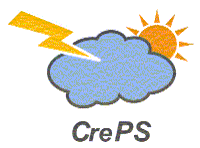Thank you for your communication. I am now going to write down what I have in my mind concerning to the issue you raised.
(1) Your communication reflects, I understand, the current and advanced understanding of the research situations in the Academia in Japan and in the World.
On the question, “Is there any ‘Method’ for leading academic, advanced research?”, the Academia at present has not found such a Method as a common understanding.
(2) However, science and technology have been extending and advancing rapidly, and we know that many researchers have mastered how to achieve advanced research and many research organizations have been promoting such research.
Thus, we should not understand there exist no Ways. We should rather say that there are many Ways, so many and so different Ways, and many of them are partial, specific, and trial-based. And hence, it is not possible to present one (or multiple) consistent Method(s).
Especially, no Method is known which is simple, sure, universal, and clearly teachable.
(3) This is a very peculiar situation, I feel.
Many graduate schools in the world bring up researchers who carry out advanced research.
When they teach the young researchers how to carry out original research, i.e., creative problem solving, are they limited to teach in their specific fields and individual cases of themes?
Abstract and spiritual lessons, such as ‘Survey references !’, ‘Do experiments from various standpoints !’, ‘Think over carefully !’, ‘Do not give up !’, etc., are the only ways possible ?
(4) Conventional knowledge on how to conduct creative research in academia is summarized, for instance in Japanese, in the book “Chou Hassou Hou (Super-methods for Idea Generation)” by Yukio Noguchi (Koudansha, 2000) . The book may be summarized as:
For (discoveries and) inventions, (it is often assumed that) idea generation and enlightenments are important. Thus many surveys were carried out to record the experiences of enlightenments by scientists and engineers.
Findings in common:
(a) Continuing study and research, having sound background knowledge,
(b) Having the problem in mind, thinking to solve it for a long time, generating ideas in various directions and examining them,
(c) At an occasion of some relaxed mental state, with a trigger of some minor event or in the dream, happened to encounter the 'enlightenment'.
(d) Applying the enlightened idea to the problem, one could solve the problem quickly.
At this stage of findings, we do not have any clear ‘Method’ yet.
(5) In the fields of industries, on the other hand, various forms of ‘Idea generation methods’, ‘Systematic methods for developing engineering systems’, etc. have been developed and used.
TRIZ, having its origin in the ex-USSR, is such a systematized method.
Such methods, however, are fragmental, overlapping, and unnecessarily complex, because no good paradigm has been found.
(6) In the situation (5), I have found a new paradigm, i.e., the Six-box Scheme.
(7) It is a pity that the results of (5) and (6) are rarely penetrating in the academia.
Researchers in the academia, especially those leading researchers, have already mastered, or they think they have mastered, how to carry out the research, and they know how much efforts they need to make. Thus they would not like to accept the idea that there is a new simple Method. They believe in their career and their special abilities.
(8) We should better first think over for what types of purposes we need the Method. In the order of scopes, we may need to work:
(a) To think over the future grand directions for research themes in the scope covering various research fields.
(b) In a research field, to think over on what research theme to work.
(c) For a research theme, to think over what should be really revealed and solved.
(d) For a research theme, to think what is the barrier making the revealing/solving difficult and how to break it through.
(e) For individual tasks in a research theme, to think of the methods of research, experiments, and equipment design, etc.
(f) For problems and tasks in further detail, to think how to solve them one by one.
(9) I think that the representation of the Six-box Scheme fits well for the purposes of (d), (e), and (f). For the purposes in (a), (b), and (c), the Six-box Scheme can be applied in its essence but need to be adjusted slightly.
Even though there exist some differences depending on the size of the scopes, the Methodology of the Six-box Scheme may be applicable widely despite of the differences in the research fields and research themes.
(10) In order to understand and apply the Six-box Scheme to researches, it must be useful to survey, probably with interviews, how the research proceeded/promoted (in the research context itself) in some specific research themes in the past and to write them down in the Six-box Scheme.
Then we should try to apply the Six-box Scheme (of the CrePS methodology) to conducting some on-going research.
For this purpose we need persons who understand both the research theme and the method.
It is very much desirable to do such case studies for some nice researches in the history and some on-going researches.
The Method of Creative Problem Solving is equivalent to the Method of Advanced Research, hence it is very important to have them used in the academia.
In this sense, the issue raised here is quite important for further discussions and real studies.
